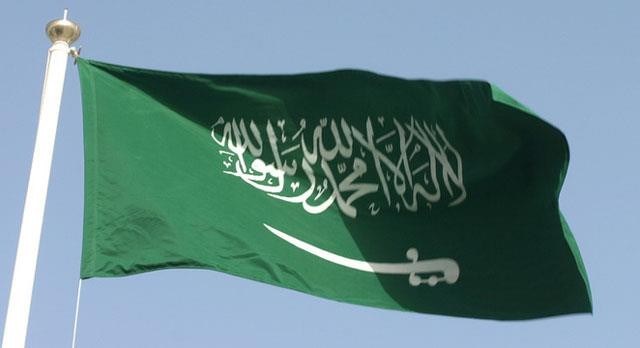
Pakistan-Saudi Arabia have a proud history of cordial brotherhood. Since day one, both countries have stood shoulder to shoulder. The relationship has strengthened with time. However, to benefit from Vision 2030’s opportunities, Pakistan must comprehend the new dynamics. Saudi Arabia is on a transformational drive, and a new generation of leadership is leading the transformation. Economic rationales and regional and global aspirations influence the new leadership’s decisions.
Thus, Pakistan has to be realistic, follow economic rationale, and develop a wise, smart, and multipronged policy. Pakistan should not overemphasise the historical relationship. The policy must be free of rhetoric and focus on real-time situations. If Pakistan can devise a reality-based policy, then it will be able to benefit from numerous opportunities.
First, Saudi Arabia will need labour, especially in the services sector. Being home to a youth bulge, it is an excellent opportunity for Pakistan to exploit the situation in its favour. Owing to the historical relationship and the presence of millions of Pakistani diaspora, Pakistan will be better positioned to capture maximum jobs. If Pakistan could exploit the situation in its favour, it would help on two fronts. First, it will assist Pakistan in accommodating youth by finding and engaging them in decent jobs. Second, it will be a good source of foreign earnings, which is badly required.
However, Pakistan has to understand that old strategies and policies will not work. In the past, Saudi Arabia accommodated unskilled labour, but the situation has changed. After Vision 2030, the Saudi economy is diversifying and moving towards more sophisticated areas. KSA is moving towards digitalisation and strengthening the services sector. For that purpose, a qualified and skilled labour force is required. For example, in the tourism sector, people from across the world will be visiting KSA, and to deal with them, KSA needs quality labour. Thus, Pakistan should work to build a skilled labour force pool.
Secondly, Pakistan can also join hands with Saudi to improve the human capital in KSA by providing quality education and medical staff. Pakistan produces many doctors and educationists, which can be exported.
Third, environmental cooperation has emerged as a new area of work. Saudi Arabia puts a lot of effort into improving and protecting the environment. KSA has launched numerous initiatives to achieve this goal. Saudi Arabia is willing to benefit from the Pakistani experience, especially in plantation. The Kingdom has announced planting 10 billion trees and wants to learn from Pakistan’s green and clean programme. Moreover, Pakistan also has expertise in water management and climate change. It is good to know that some Pakistanis are already in these fields in Saudi Arabia.
Fourth, Pakistan can also exploit the potential of the Saudi food market. According to statistics, Saudi Arabia imports more than 80% of food to meet local demand. They spend billions of dollars on food imports and these imports are anticipated to expand in the coming years. Three significant factors will contribute to a sharp increase in demand. First, it is predicted that the population of Saudi Arabia will be around 40 million in 2030. Second, people’s living standards are improving, and people will be looking for diversified food products and commodities. Third, enhancing tourism will also increase the demand for food.
All these factors present a window of opportunity for Pakistan, especially for halal meat, dairy products, fruits, and vegetables. Unfortunately, the share of Pakistani commodities and products is currently meagre. The leading trade partners in the food sector are Germany, the USA, China, Italy, Spain, Netherlands, India, Brazil, and New Zealand. Saudi Arabia has to pay heavily to transport food products, which leads to increased food prices; or the Kingdom has to subsidise food. Pakistan’s proximity makes it ideal for the import of food. For that purpose, Pakistan has to come up with an intelligent policy. It is good to note that under the Special Investment Facilitation Council (SIFC), the government is working to build close collaboration with Saudi Arabia in the agriculture and food sectors. It will be a win-win proposition. Most importantly, Saudi Arabia will have a reliable partner in crises like COVID-19 or the Russia-Ukraine conflict.
Fifth, Saudi Arabia is venturing into the entertainment and sports industries. Pakistan is one of the powerhouses in some sports and entertainment industries. Thus, a well-planned policy and strategy can help Pakistan benefit from this market.
Sixth, defence is another area where Pakistan and KSA can create a new history of cooperation and brotherhood. Both countries already have deep, objective-oriented, and trustworthy defence relationships. Pakistan has always shown a strong commitment to protecting the holy land. Building on the past, Pakistan and Saudi Arabia can look for new avenues of cooperation. Vision 2030 goals for the defence sector can guide to enhance collaboration. According to Vision 2030, Saudi Arabia will strive to lower its dependency on imported defence products. In 2015, Saudi Arabia met defence needs by importing 98% products, which is not a good omen for a sovereign country. Against this backdrop, the country decided that, by 2030, KSA will be meeting 50% needs from local production.
In this case, Pakistan should immediately offer to join hands with KSA to strengthen its local production. Pakistan excels in specific fields like missiles, tanks, drones, ammunition, and fourth-generation fighter jets. Pakistan can use its experience to help KSA build a local industry.
In conclusion, the above discussion indicates that cooperation will be a win-win proposition. However, to exploit the full potential of opportunities, Pakistan and Saudi Arabia need to develop a strategic cooperation framework similar to that of the China-Pakistan Economic Corridor (CPEC). Sporadic efforts or haphazard interventions would not be of any use. It is proposed that both countries formulate a “Vision 2030 Working Group” for objective-oriented work and develop concrete plans and actions for the future.
The writer is a political economist and a visiting research fellow at Hebei University, China
Published in The Express Tribune, October 2nd, 2023.
Like Business on Facebook, follow @TribuneBiz on Twitter to stay informed and join in the conversation.





1725784957-0/Tribune-Pic-(17)1725784957-0-165x106.webp)




1731884290-0/image-(9)1731884290-0-270x192.webp)







COMMENTS
Comments are moderated and generally will be posted if they are on-topic and not abusive.
For more information, please see our Comments FAQ